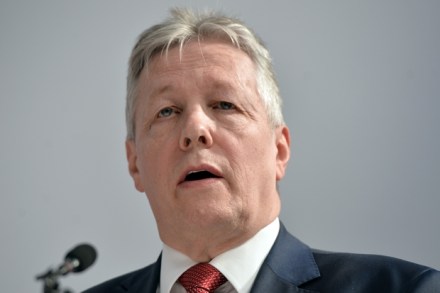Peter Robinson’s departure intensifies Northern Ireland’s political crisis
The political crisis in Northern Ireland has just become much more serious. Peter Robinson has stepped down as first minister and pulled all but one DUP Minister out of the executive. This means that there is now just one Unionist as part of the government there. Robinson’s aim is to make the UK government suspend Stormont. This crisis has been caused by the IRA’s continuing activities. Last month, the Police Service of Northern Ireland declared that the Provisional IRA was involved in the murder of Kevin McGuigan. This week, Sinn Fein’s northern chairman Bobby Storey was one of three republicans arrested for questioning in connection with the matter. Now, Sinn




















